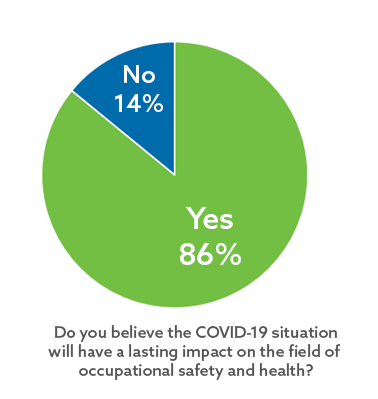It performs every possible function to eliminate these harmful substances. A healthy immune system can defeat invading disease-causing germs or pathogens such as bacteria viruses.
23 2 Adaptive Immune Response Concepts Of Biology 1st Canadian Edition
TC - cytotoxic T cells CD8 - recognize and kill infected host cells.

. There are 2 main cell types involved in this response. In the case of the acquired or adaptive immune system the body remembers the pathogens it has encountered in the past. Its goal is to keep us healthy.
Upon each infection subjects develop innate and adaptive immune responses which aim at clearing the infection. A key process in the immune systems response to microbes is the recognition of microbial agents via PRRs including TLRs and nucleotide-binding oligomerization domain containing NLRs which sense evolutionarily conserved PAMPs. Understanding of how the inflammatory cues delivered by the thermal element of fever stimulate innate and adaptive immune responses.
Upon PAMP detection PRRs activate intracellular signaling pathways that induce production of cytokines and chemokines. However a growing body of research suggests that swimming in particular produces brain-enhancing effects such as better immune response. Immunity refers to the ability of your immune system to defend against infection and disease.
Active immunity occurs when we are in contact with the pathogen or its antigen. The immune systems job. The immune system also helps the host eliminate toxic or allergenic substances that enter through mucosal surfaces.
Antibodies also known as immunoglobulins are proteins that attach themselves to pathogens. The immune system is a vast and complex interconnected network of many different organs cells and proteins that work together to protect the body from illness. Other T cells help control the adaptive immune response.
TS - supressor T cells CD8 - down regulation. B cells produce the antibodies that remember an infection. The immune response is evokes when any harmful substances or any other foreign particles enters into the body of an organisns.
The main function of B cells is to make antibodies against specific antigens. Dendritic cells then take the. Immune responses in some mucosal tissues such as the Peyers patches see Chapter 211 Figure 21110 in the small intestine take up particulate antigens by specialized cells known as microfold or M cells Figure 2152.
This signals immune cells. Humoral immunity is immunity from serum antibodies produced by plasma cells. Toxoid vaccines use toxoids as antigens to induce an immune response in protecting against diseases caused by toxins secreted by specific bacteria.
This is a direct result of the active immune system. Specifically the complement system causes the lysis bursting of foreign and infected cells the phagocytosis ingestion of foreign particles and cell debris and the inflammation of surrounding tissue. The immune system has evolved to protect the host from a universe of pathogenic microbes that are themselves constantly evolving.
Strain-specific antibody responses are. B cells produce the antibodies that remember an infection. B cells to enhance the immune response.
Central to the immune systems ability to mobilize a response to an invading pathogen. Influenza viruses cause annual outbreaks of respiratory tract infection with attack rates of 5-10. There are two types of immunity that the adaptive immune system provides and they are dependent on the functions of B and T cells as described above.
By using toxoids the body is able to form an. These cells allow the body to sample potential pathogens from the intestinal lumen. Therefore an immune response may be defined as the response by which the body defends itself against substances it sees as harmful or foreign.
Memory allows your body to react quickly and efficiently to future exposures. TD - delayed type hypersensitivity cells CD4 recruit and activate non- specific effector cells esp. Defend against disease-causing microorganisms.
Complement in immunology a complex system of more than 30 proteins that act in concert to help eliminate infectious microorganisms. Finally antibodies can also activate the complement system which opsonises and promotes phagocytosis of viruses. This means that humans are infected repeatedly with intervals of on average 10-20 years.
Strategies engaged by pathogens strongly determine how a vaccine should be formulated. We further highlight the unexpected multiplicity of roles of the pyrogenic cytokine interleukin-6 IL-6 both during fever induction as well as during the mobilization of lymphocytes. B lymphocytes B cells are responsible for humoral immunity which is the immune response that involves antibodies.
Some T cells kill pathogens and infected cells. As noted above knowledge of the complete set of antibodies in an individual antibodyome and the antibody binding partners could help in the response to challenges in the. A virus-bound antibody binds to receptors called Fc receptors on the surface of phagocytic cells and triggers a mechanism known as phagocytosis by which the cell engulfs and destroys the virus.
Active immunity involves the direct response to a foreign antigen within the body. In consequence modern vaccine development strongly builds on the precise knowledge of the biology of microbial pathogens their interaction with the human immune system as well as their capacity to counteract and evade innate and adaptive immune mechanisms. TH - helper T cells CD4 - stimulate other cells esp.
These immune signals amplified by kinase cascades trigger a variety of defense responses including cytoskeletal remodeling activation of defense function in organelles and transcriptional reprograming through the activity of pro-immune transcription factors TF. T cells and B cells. Small doses of an antigen such as dead or weakened live viruses are given to activate immune system memory activated B cells and sensitized T cells.
Vaccination immunization is a way to trigger the immune response. Later the term immunome was generalized to denote all immune system related molecules especially those involved in an immune response. Neuroscientists are still working to understand exactly why swimming is particularly beneficial in preventing aging - and may be close to the answer.
Immune System Parts Common Problems

Wellness Module 2 Stress And Well Being Here To Help

Answers To Your Current Coronavirus Questions The New York Times

What S Your Opinion How Concerned Are You About The Effects Of Legal Marijuana On Worker Safety November 2019 Safety Health
0 Comments